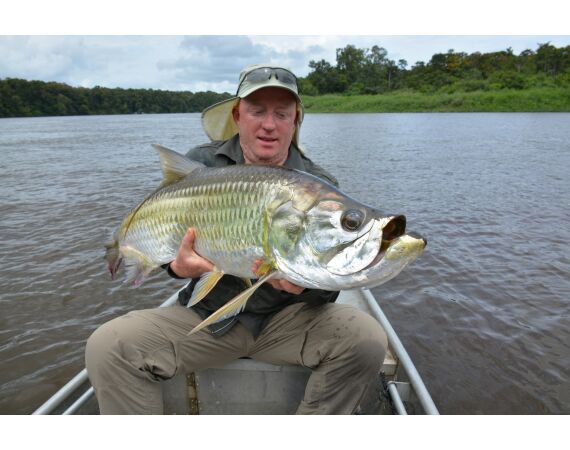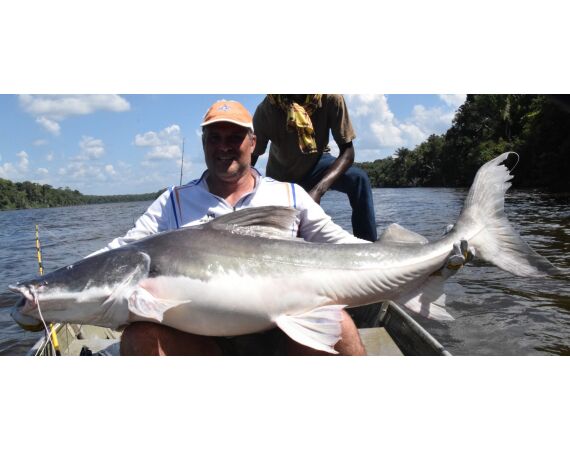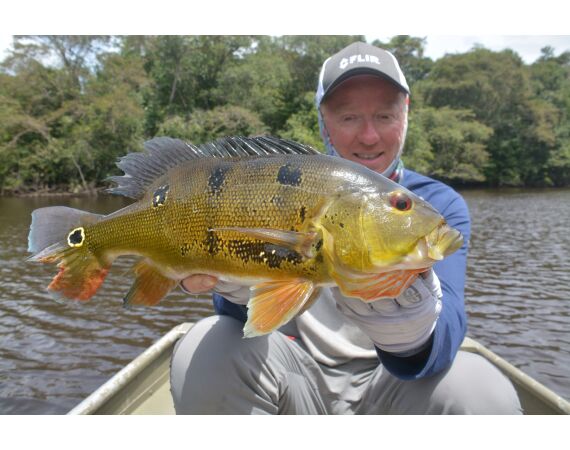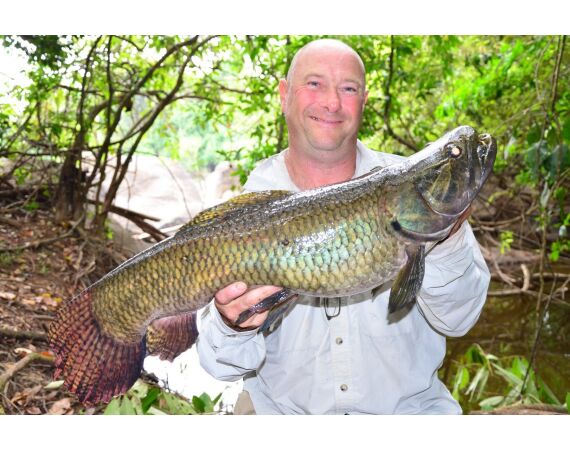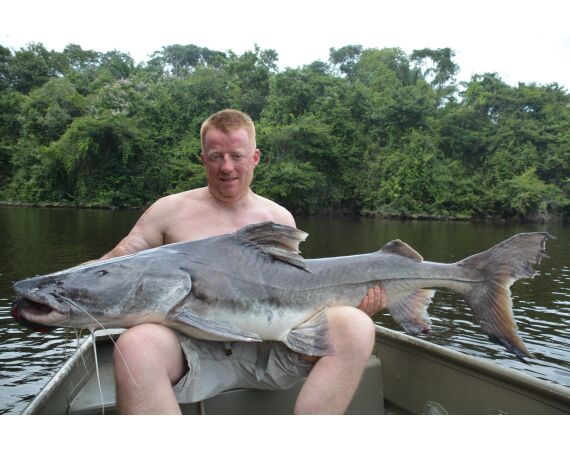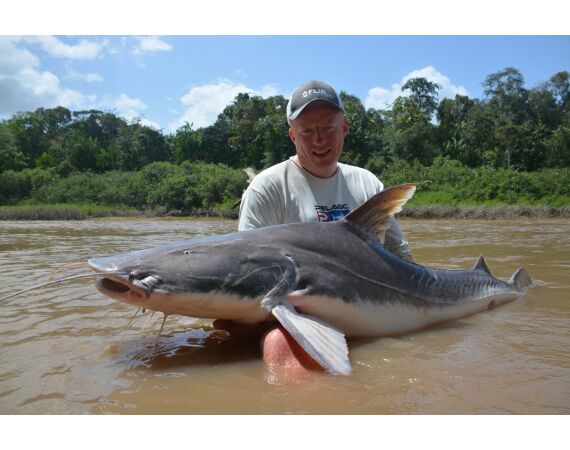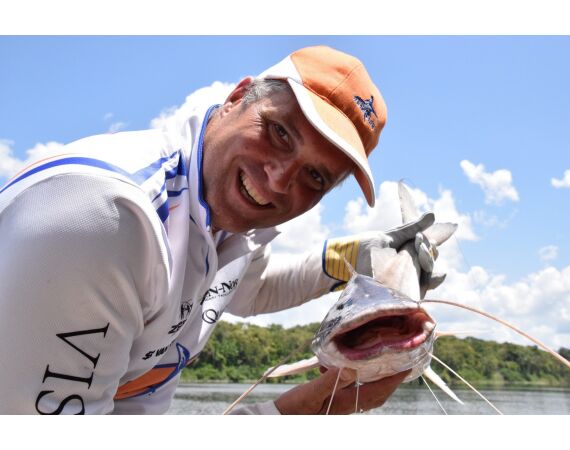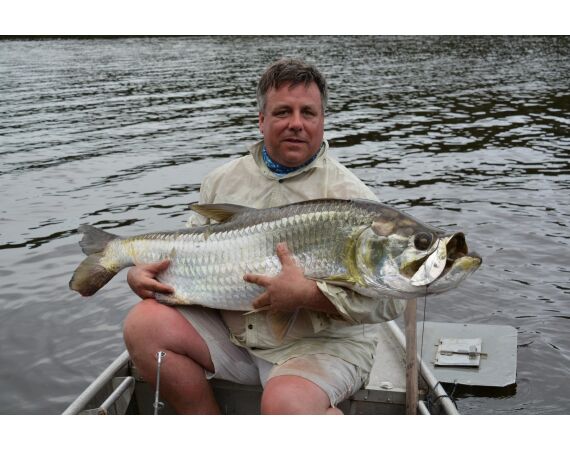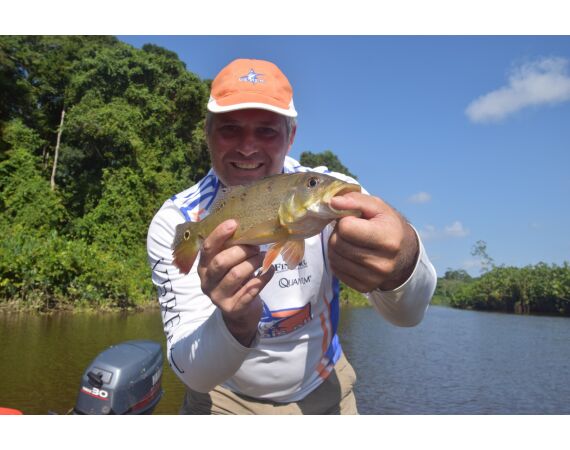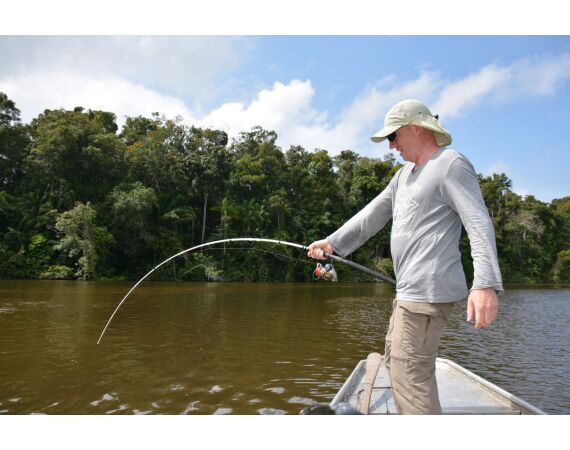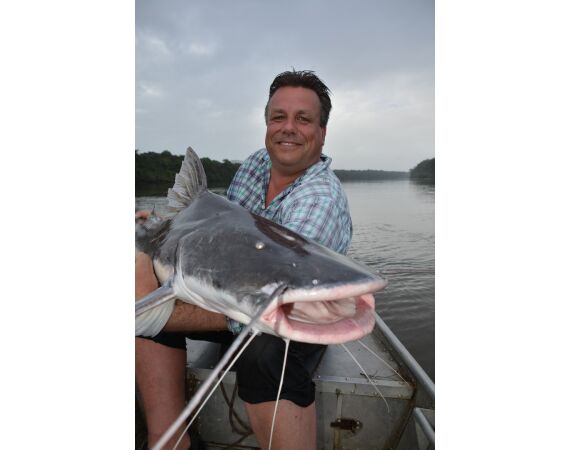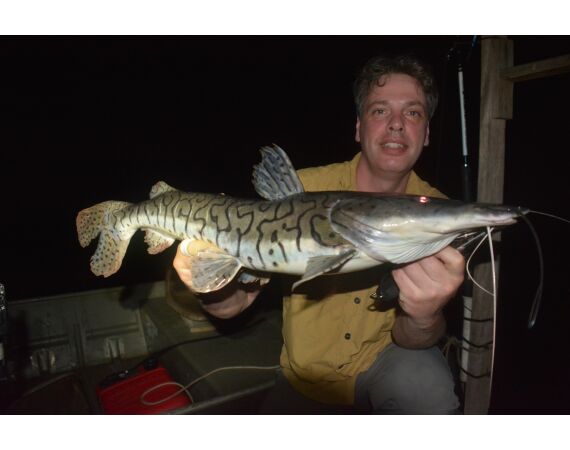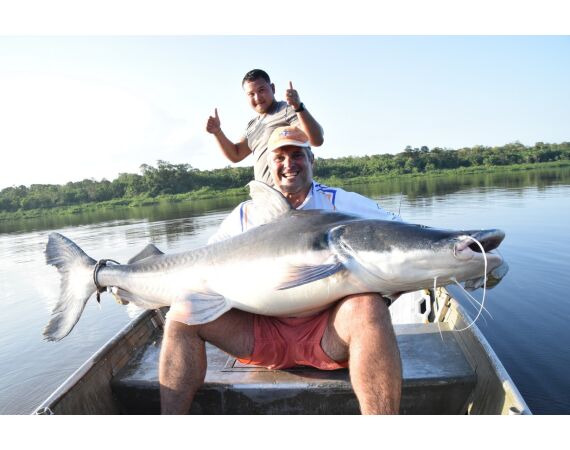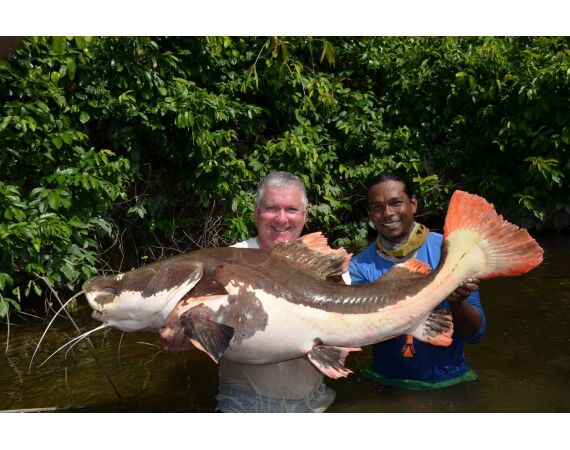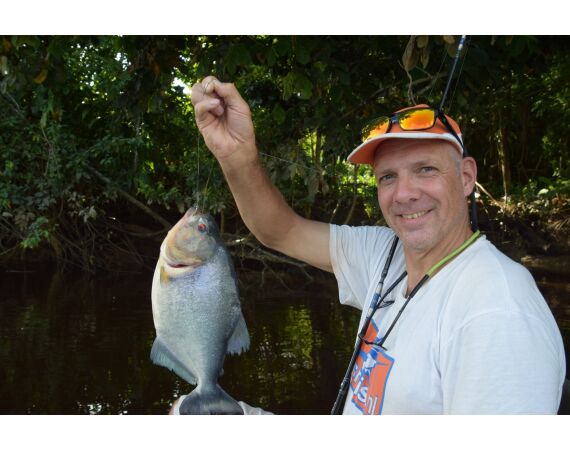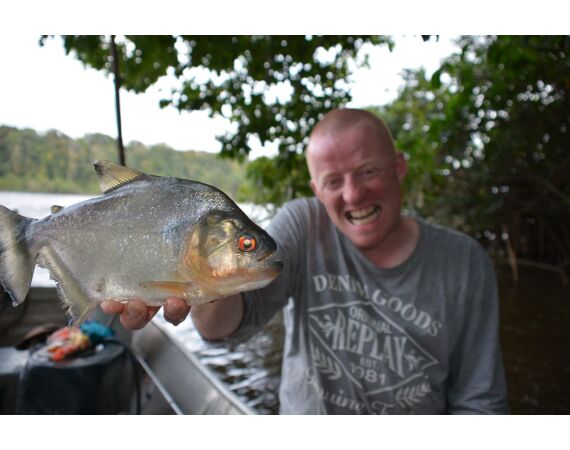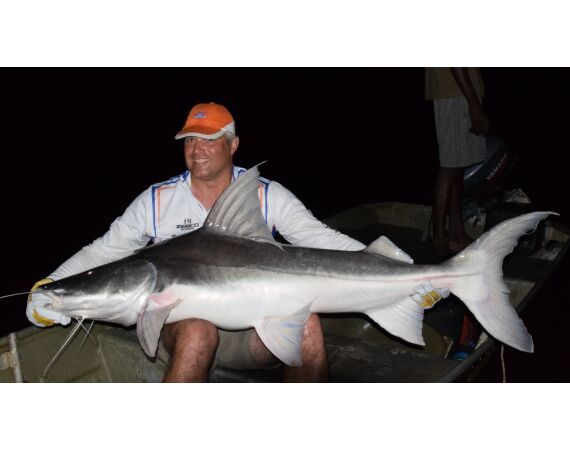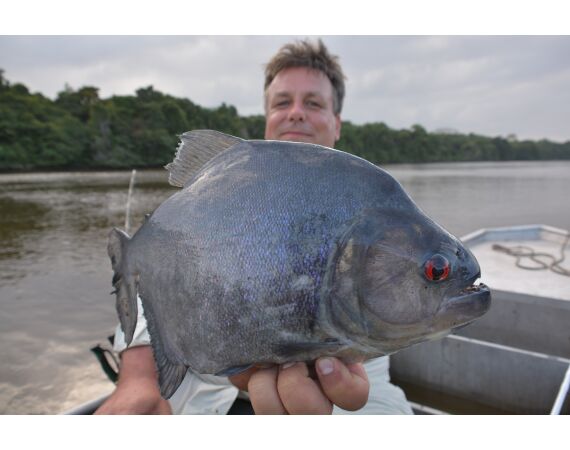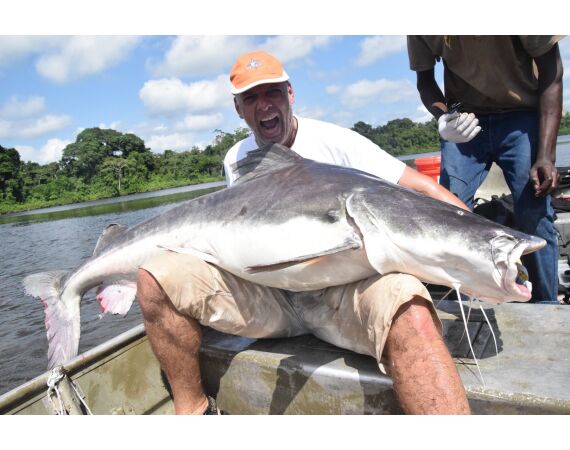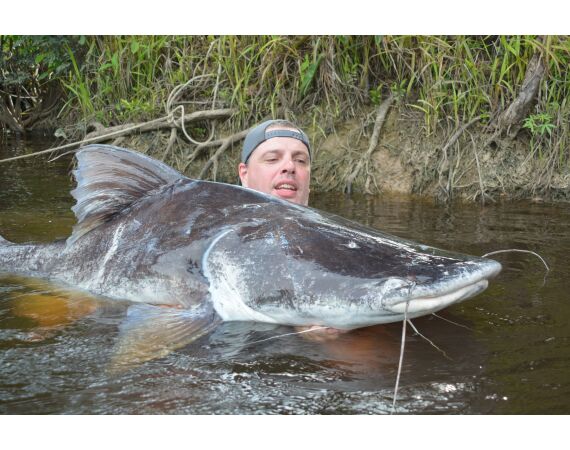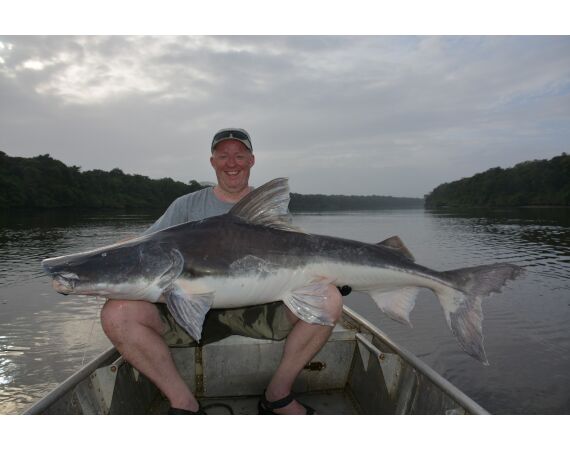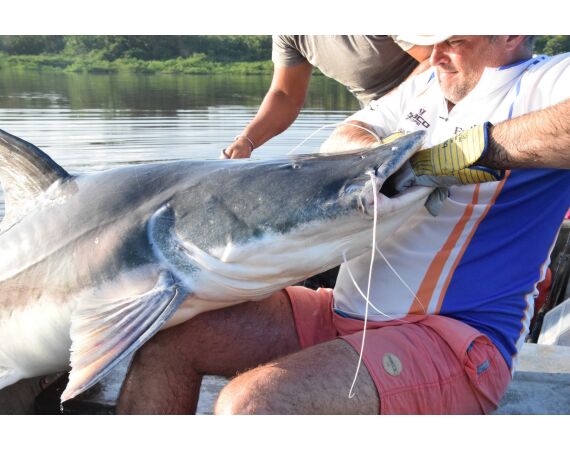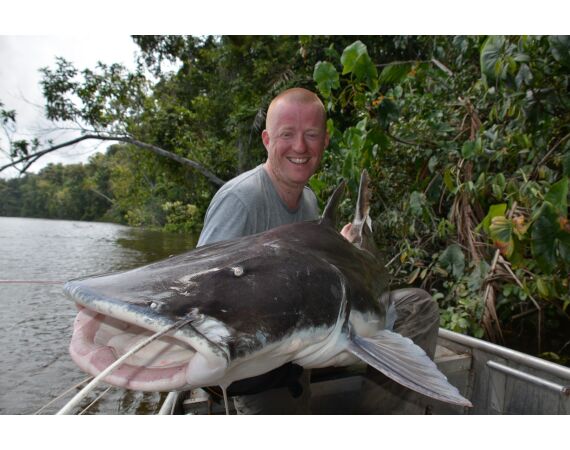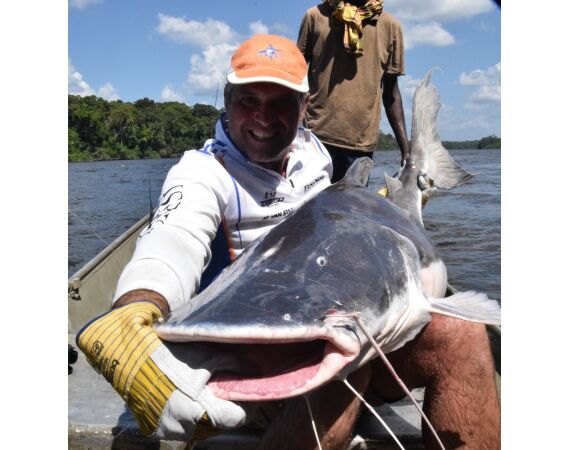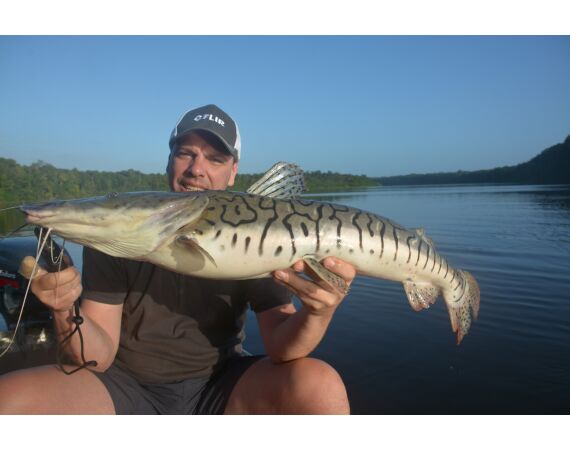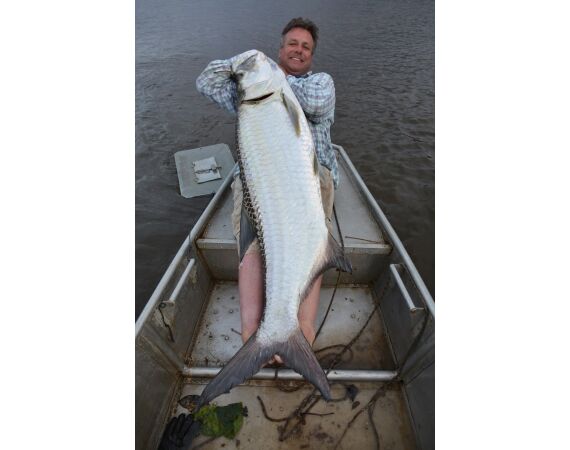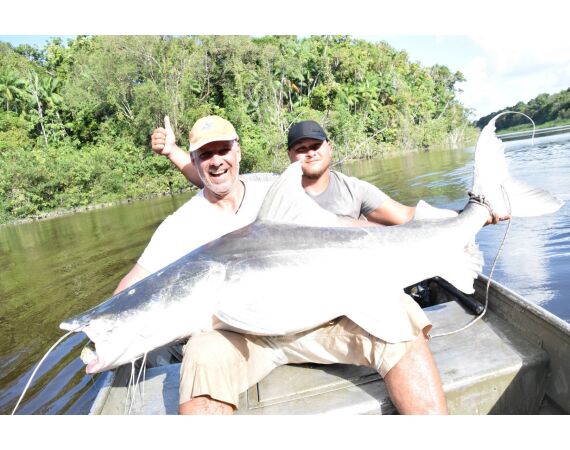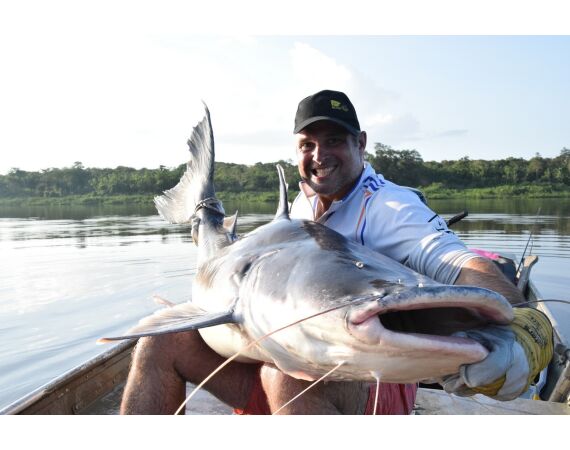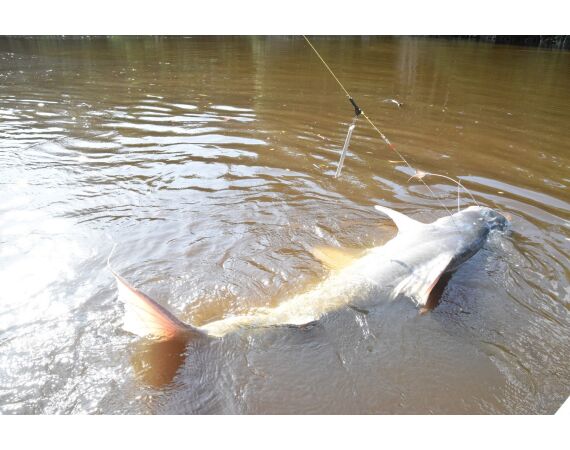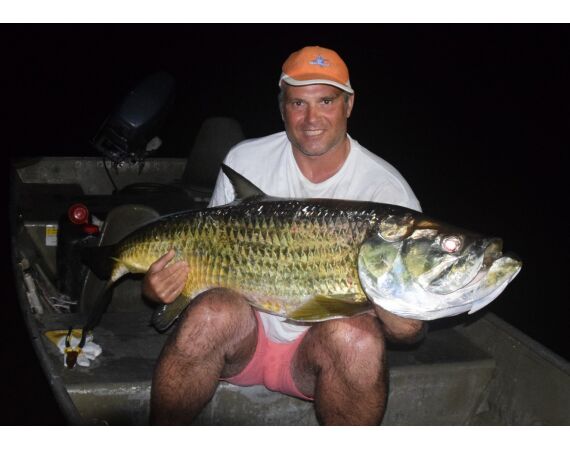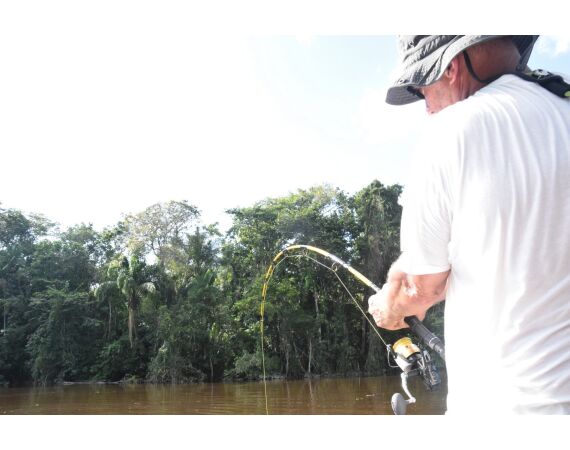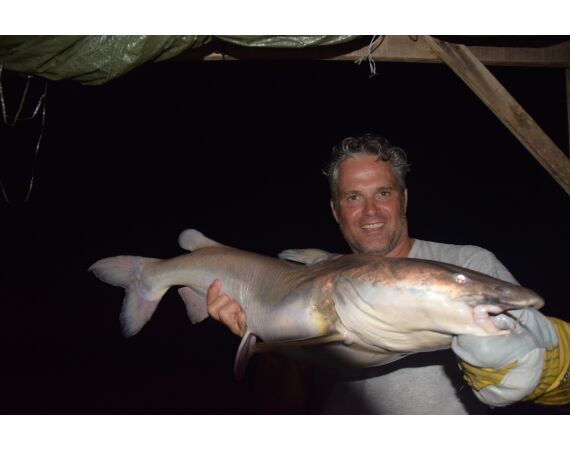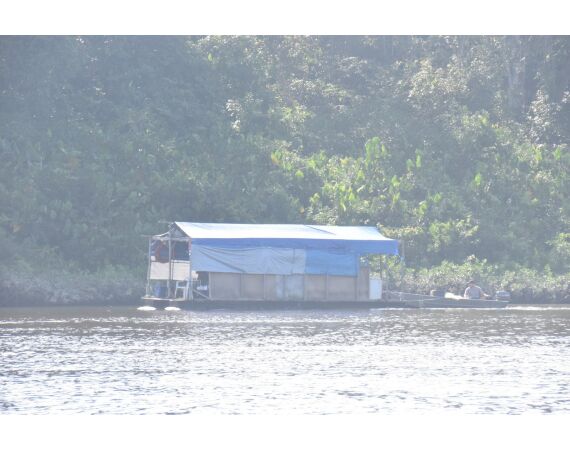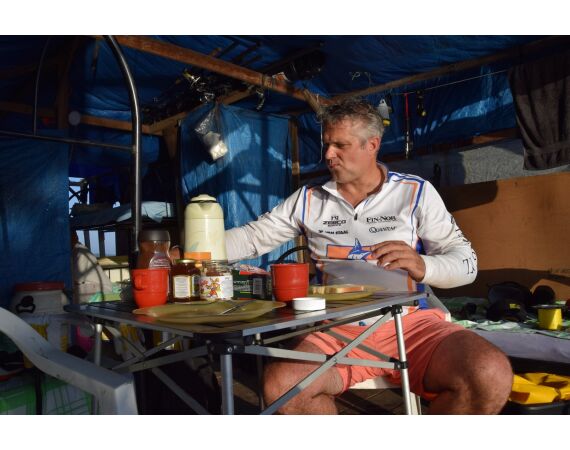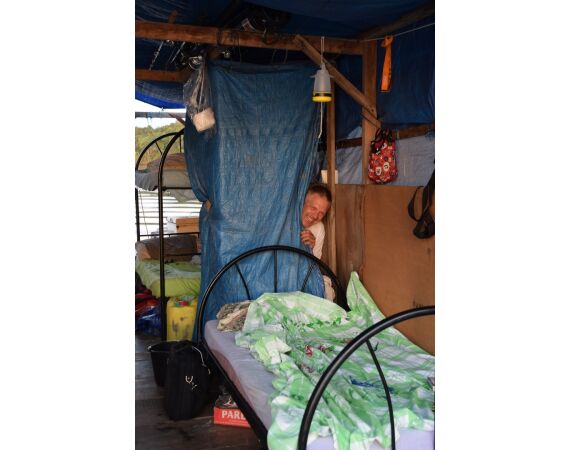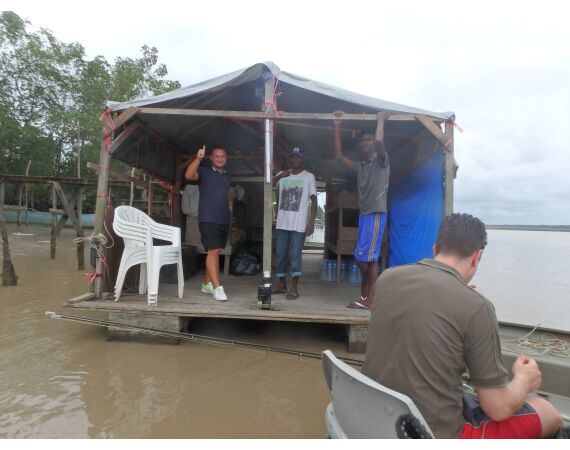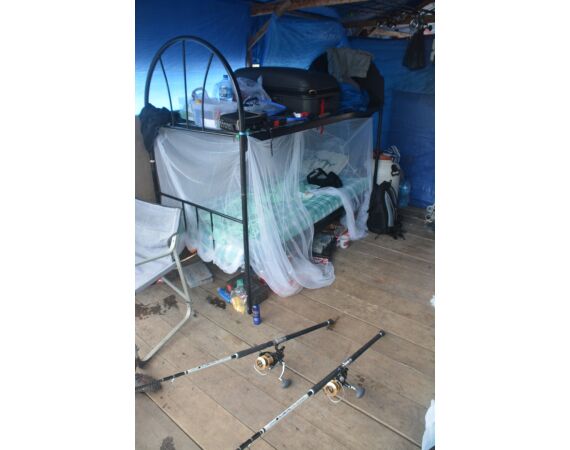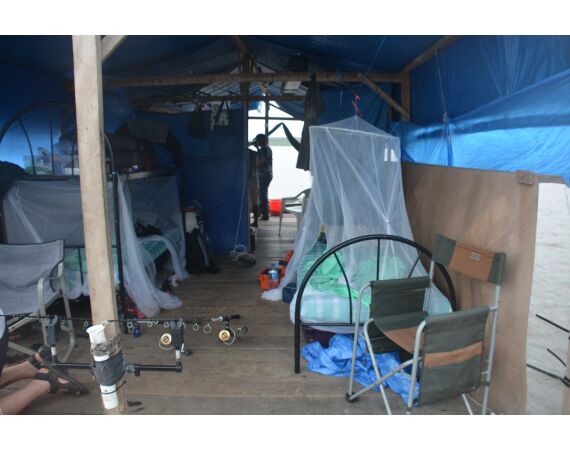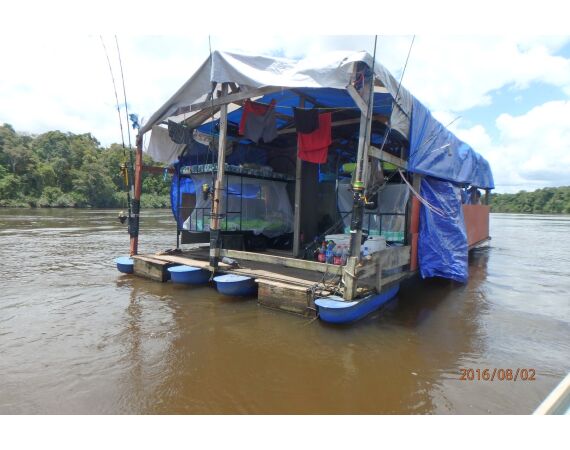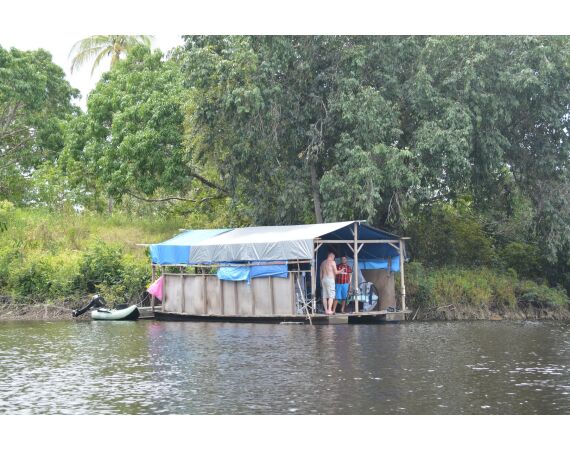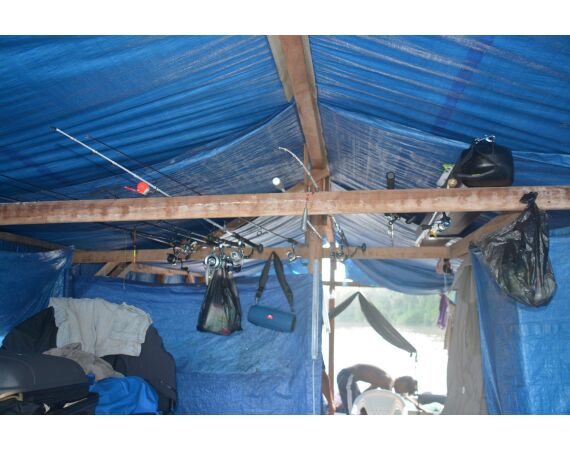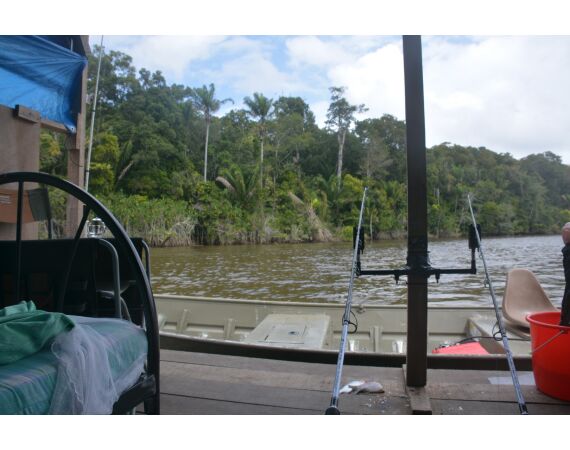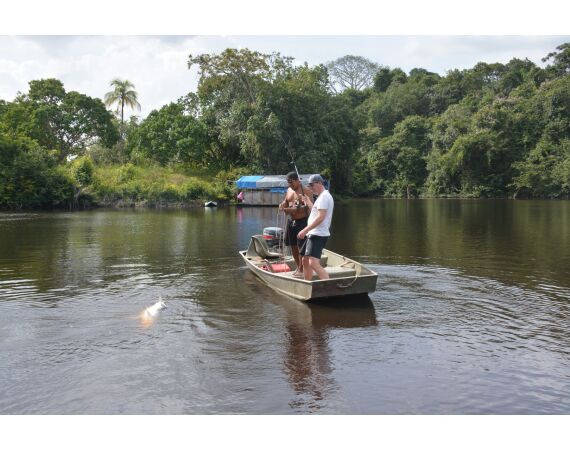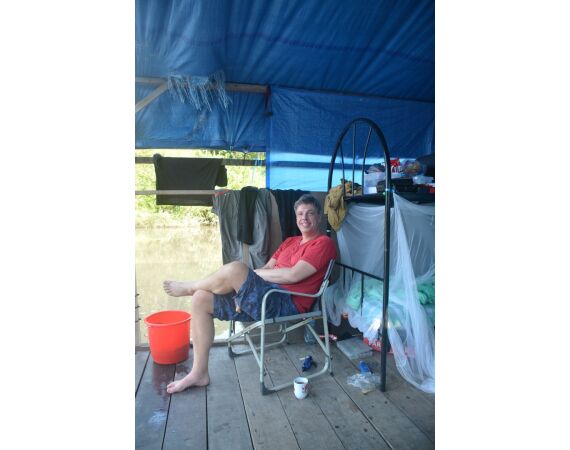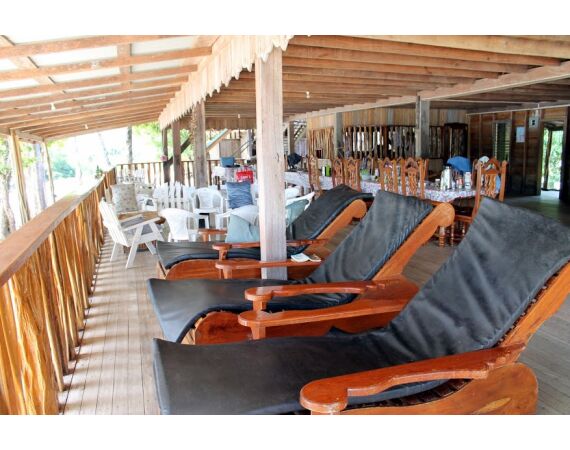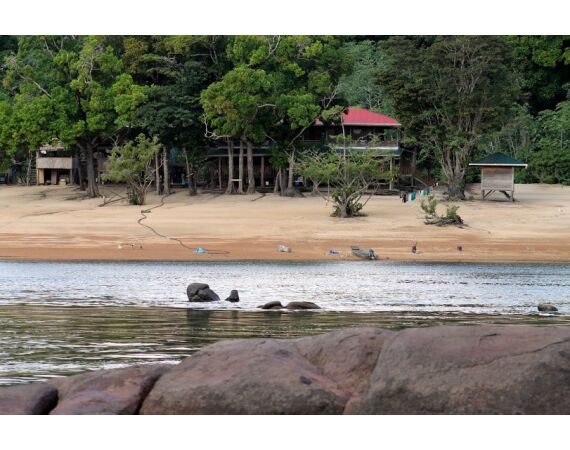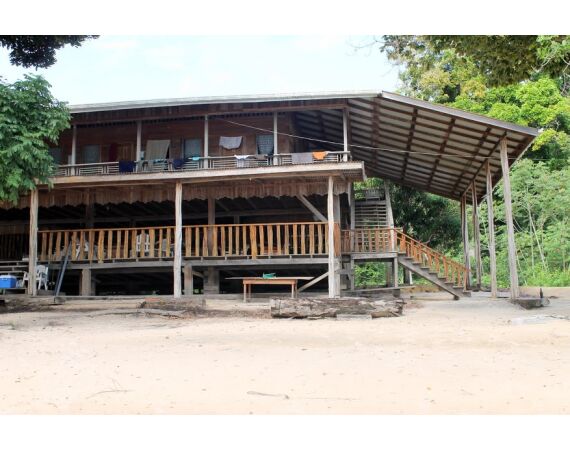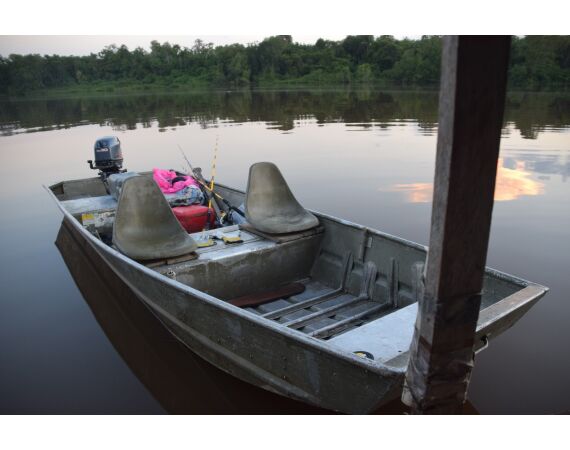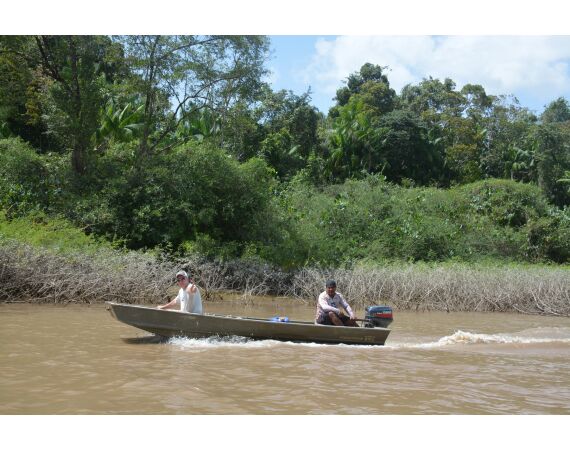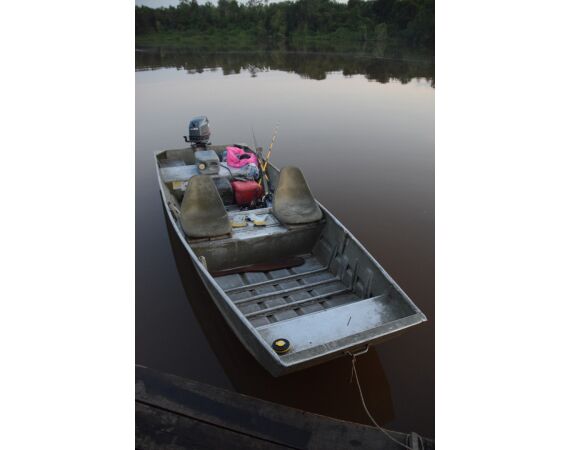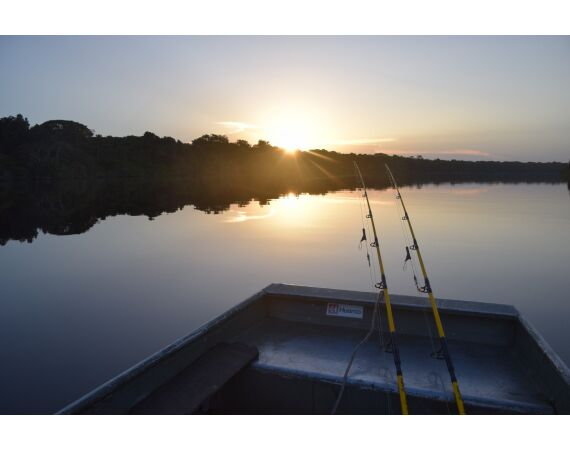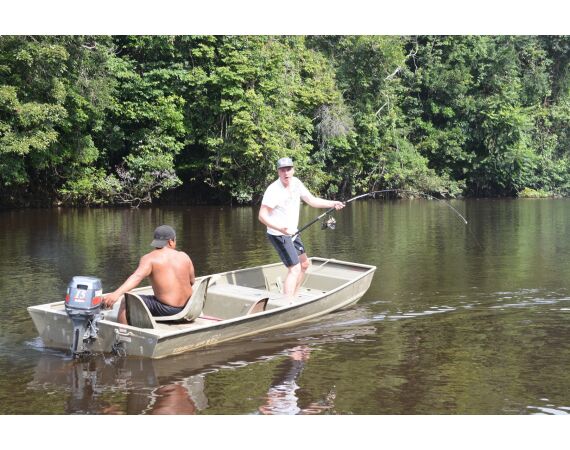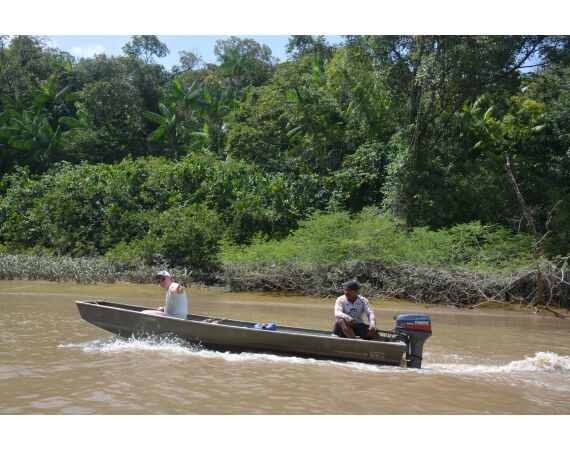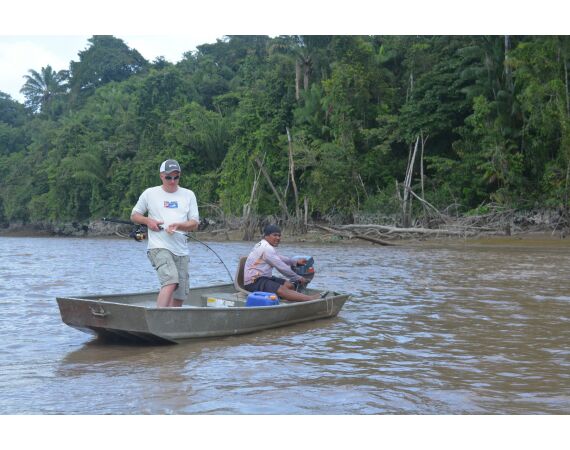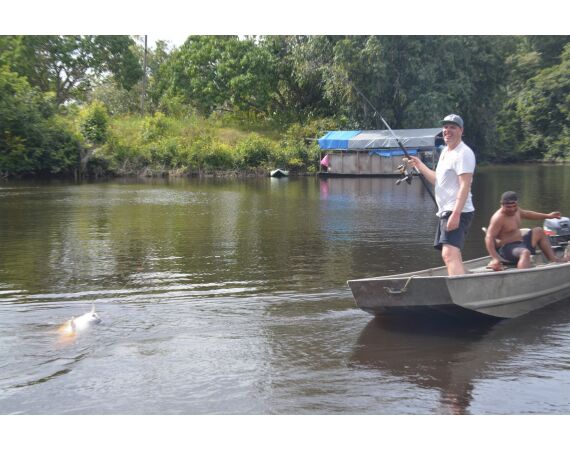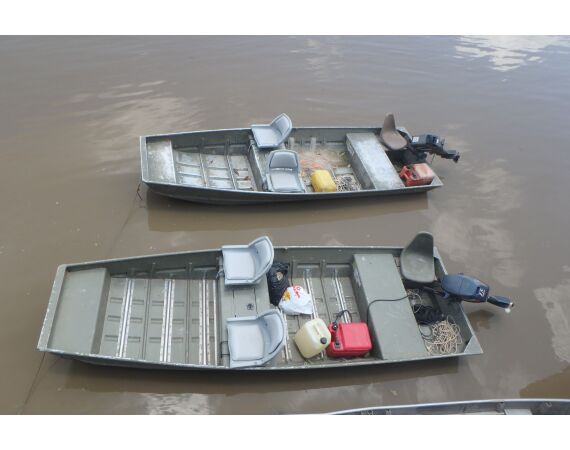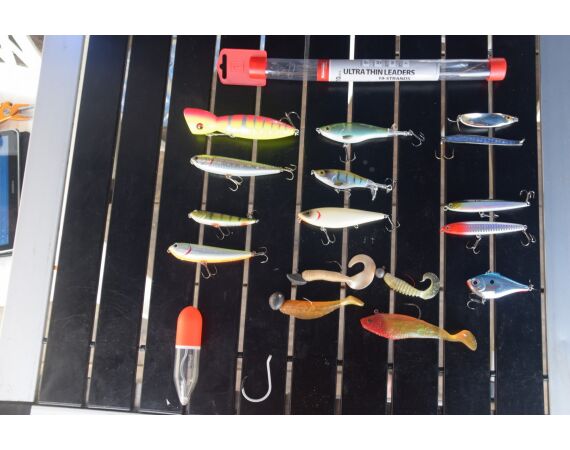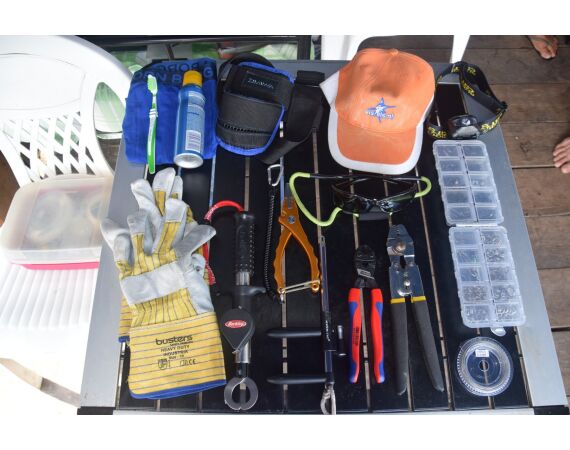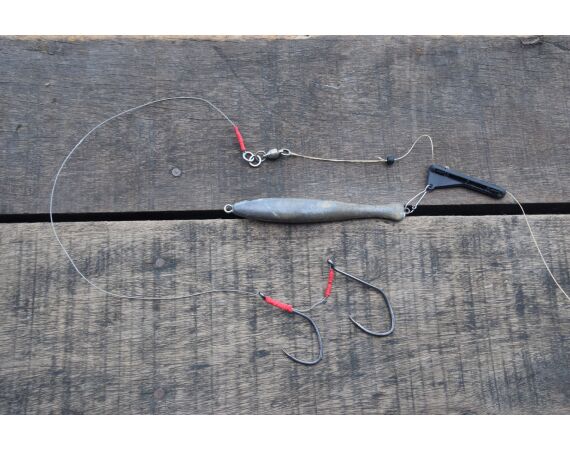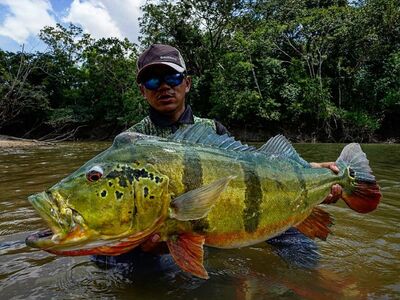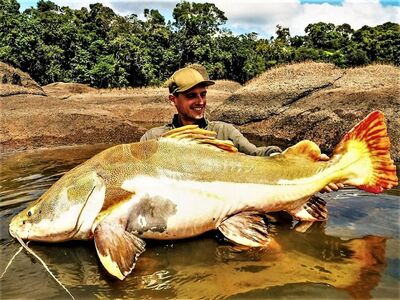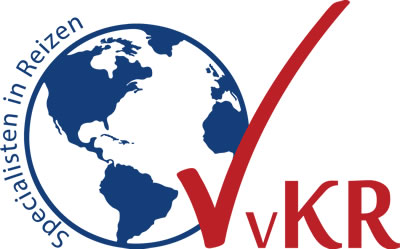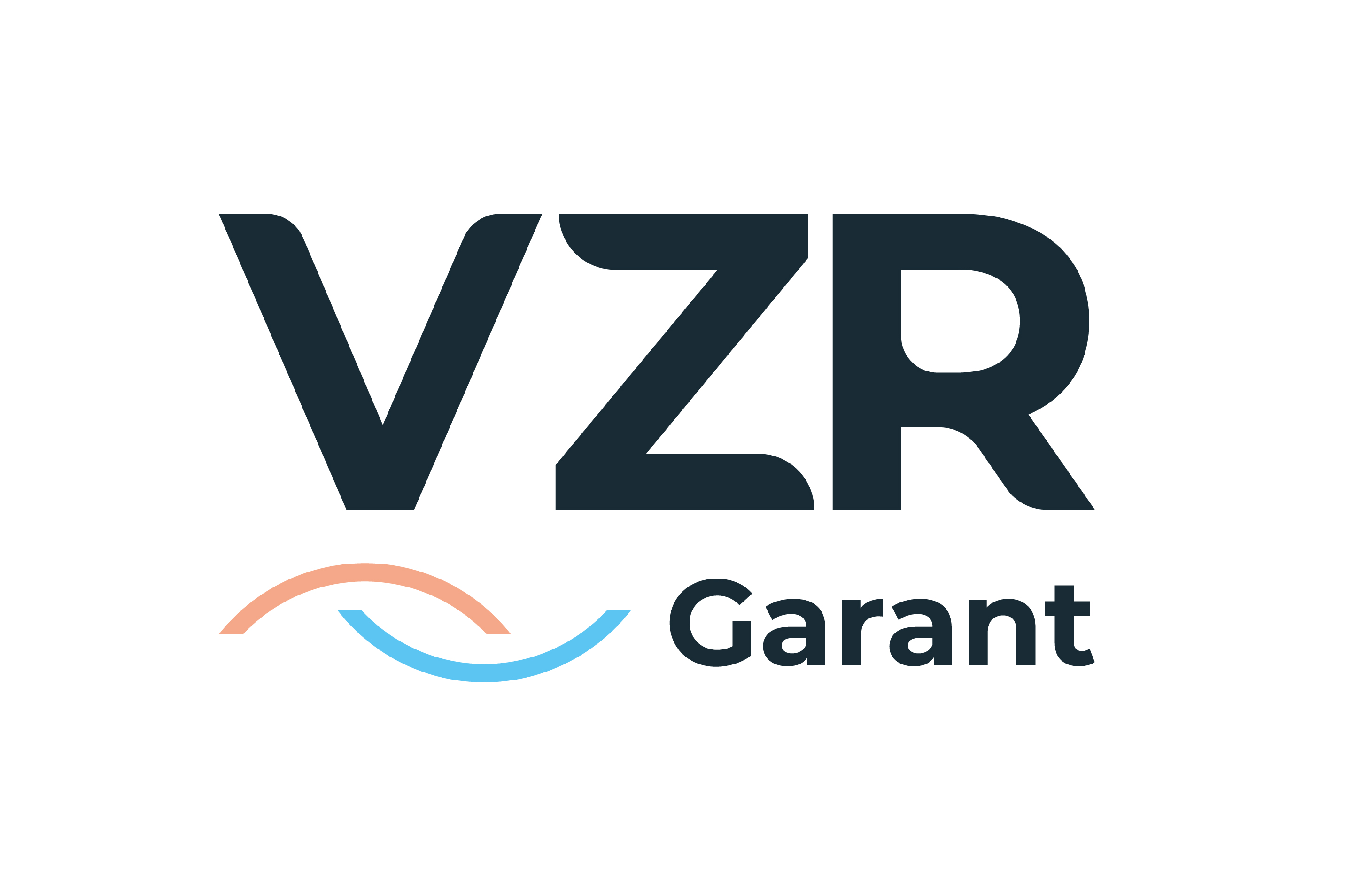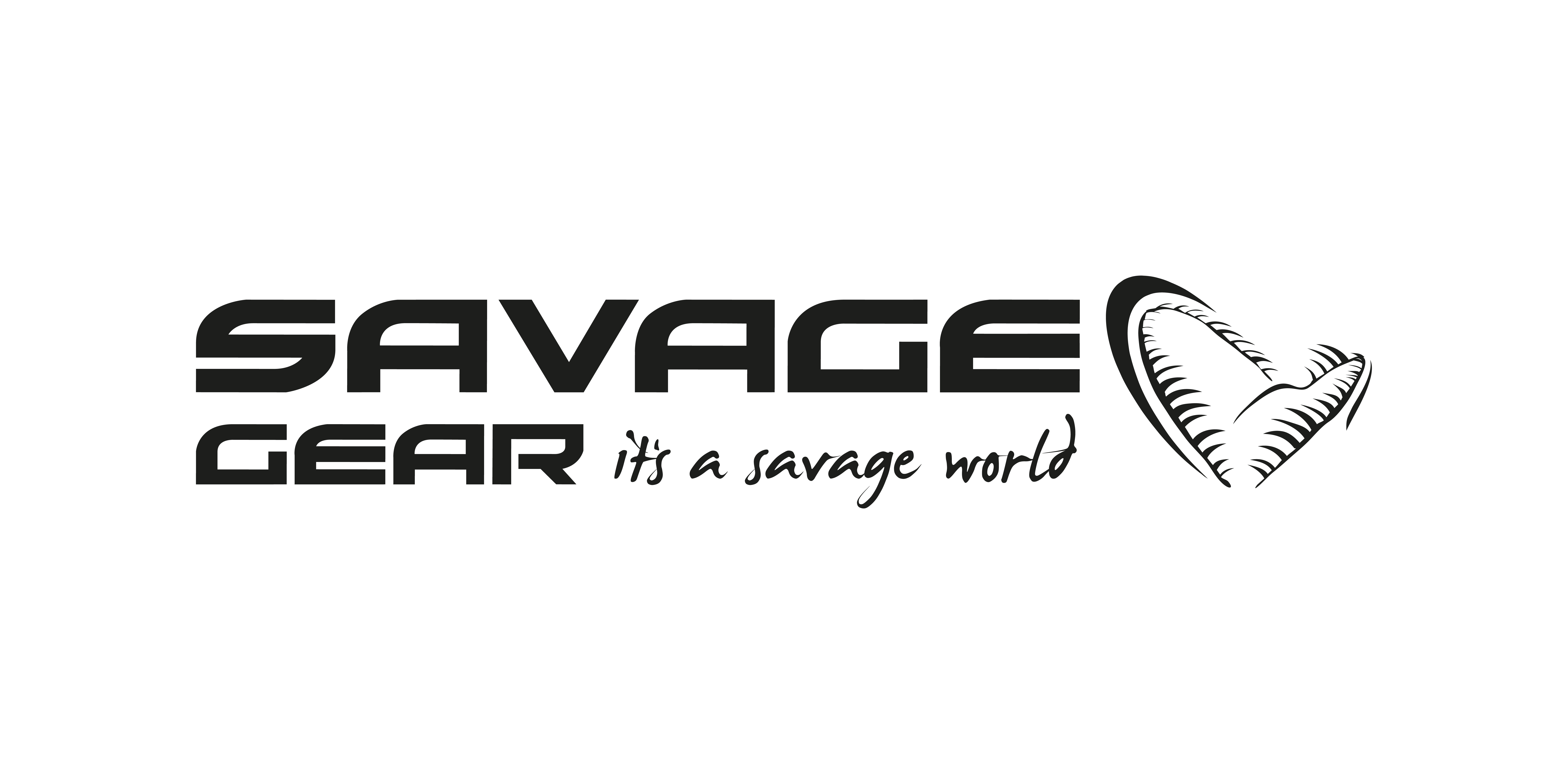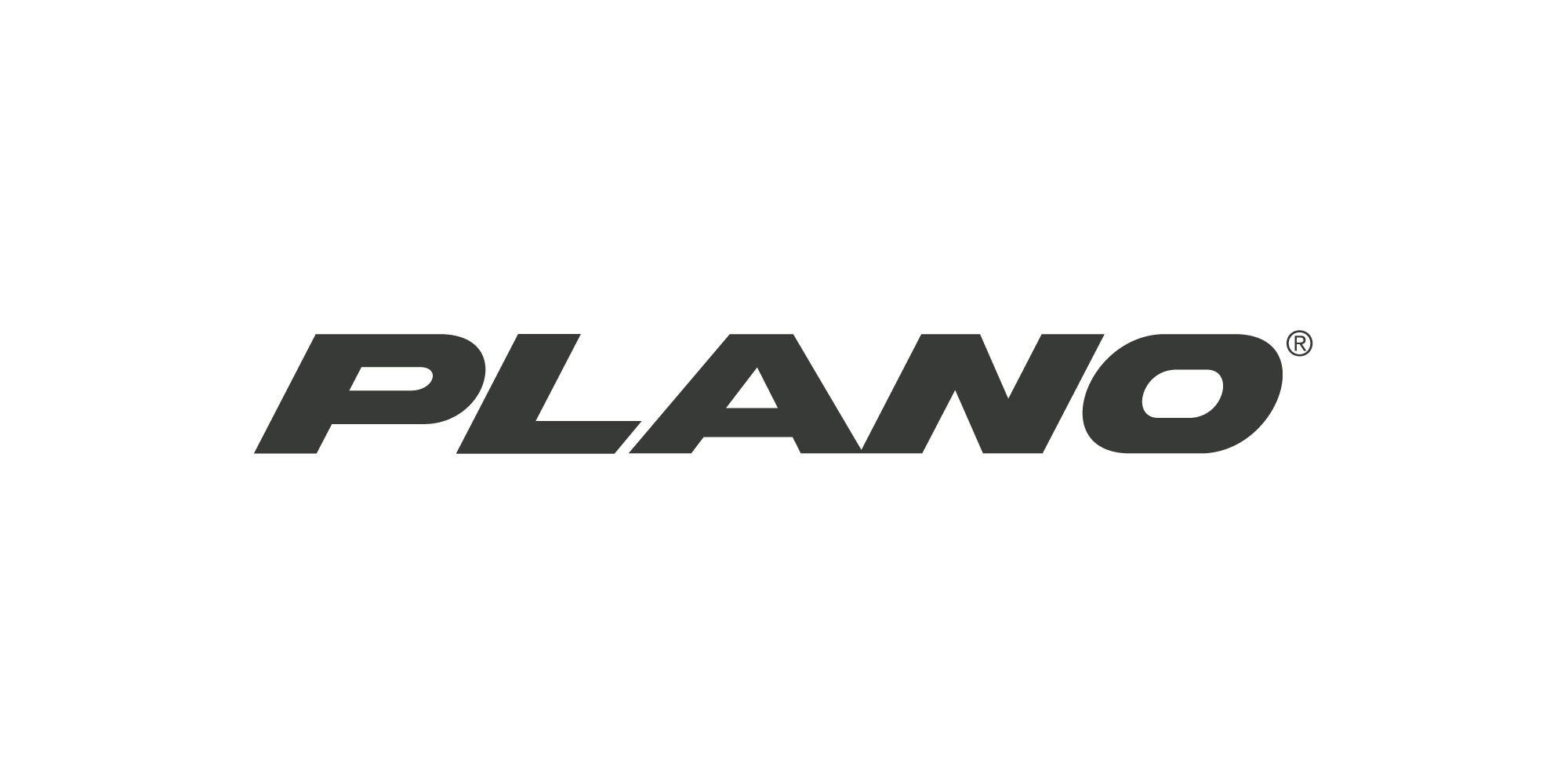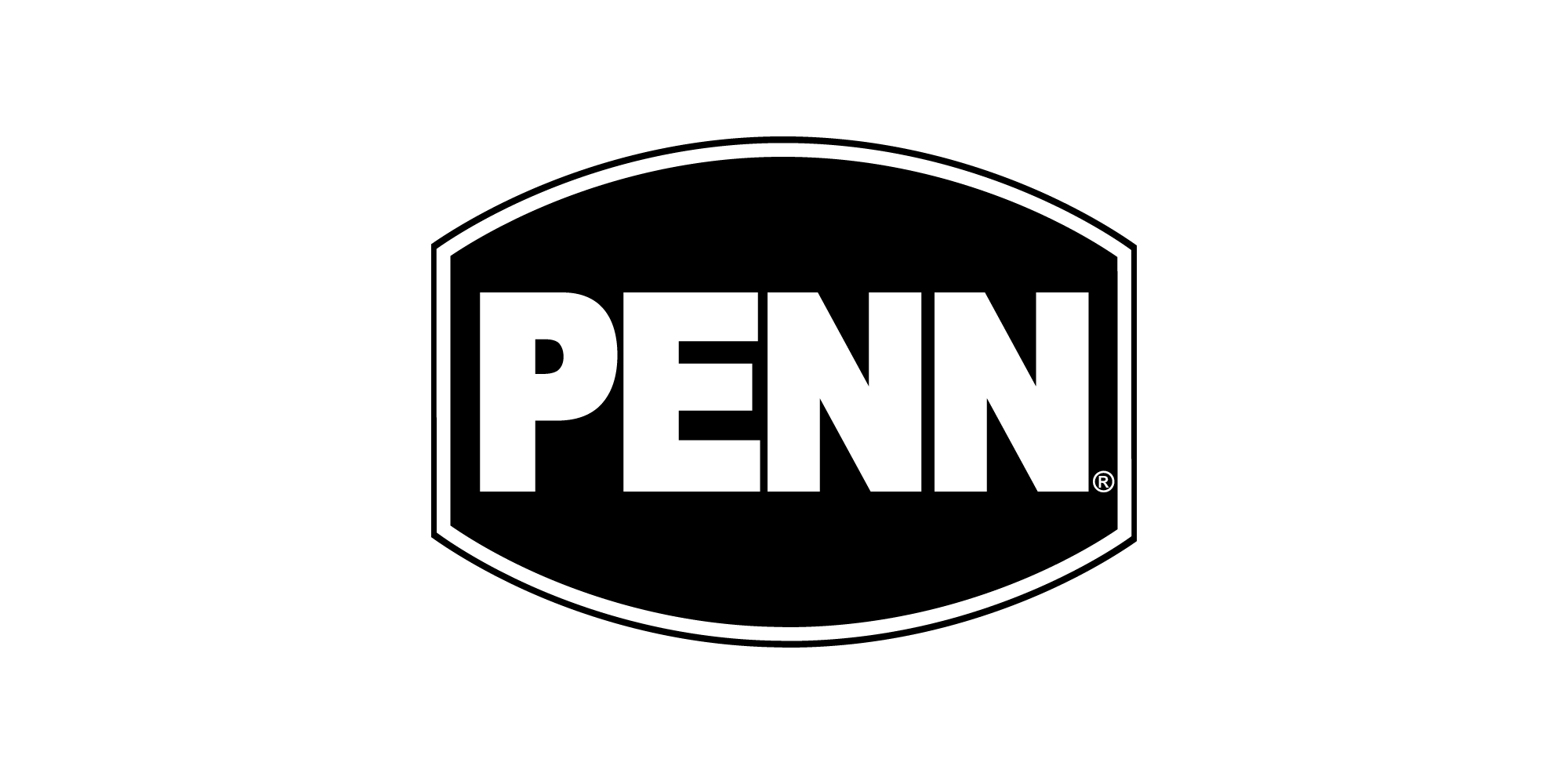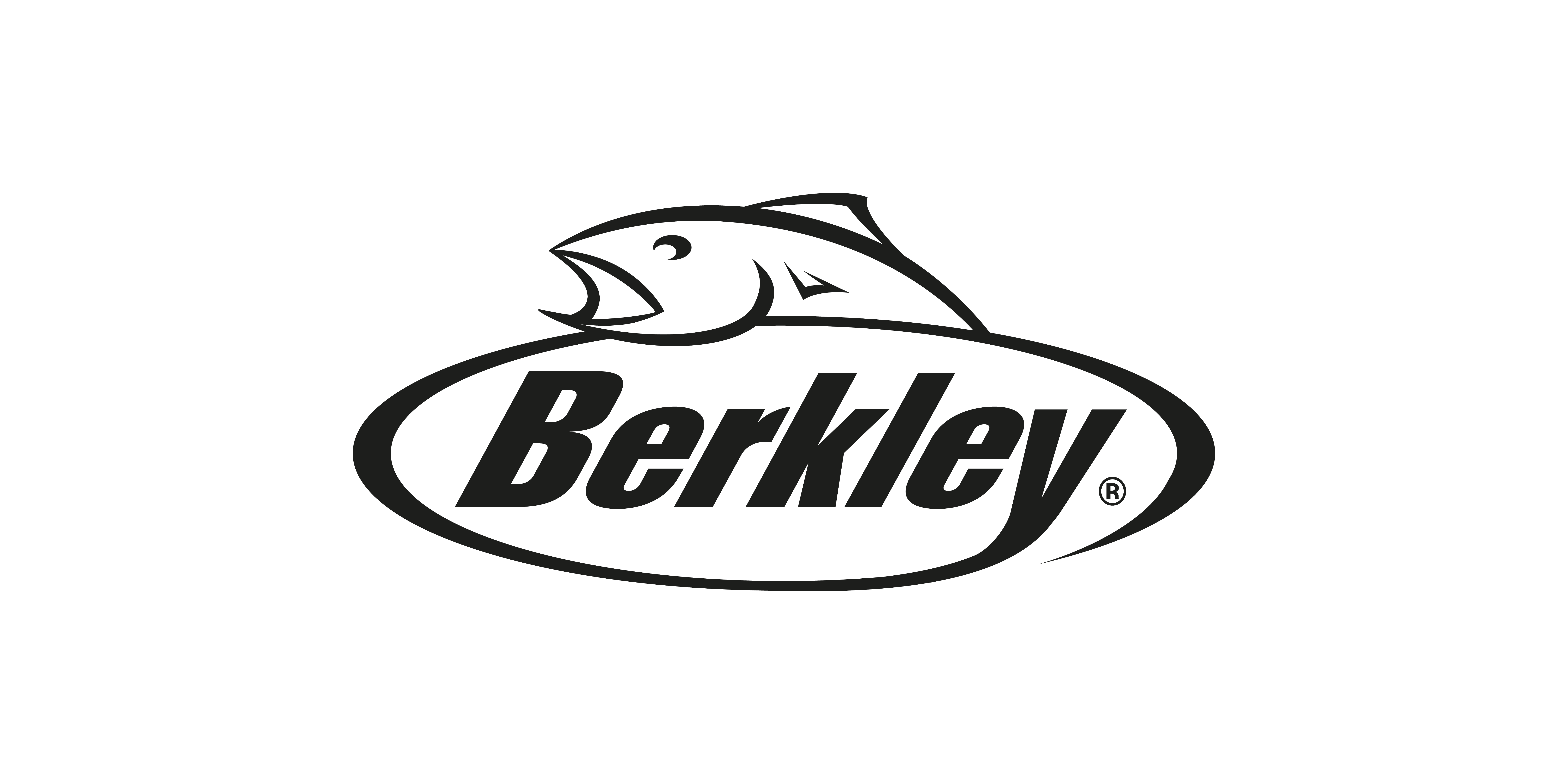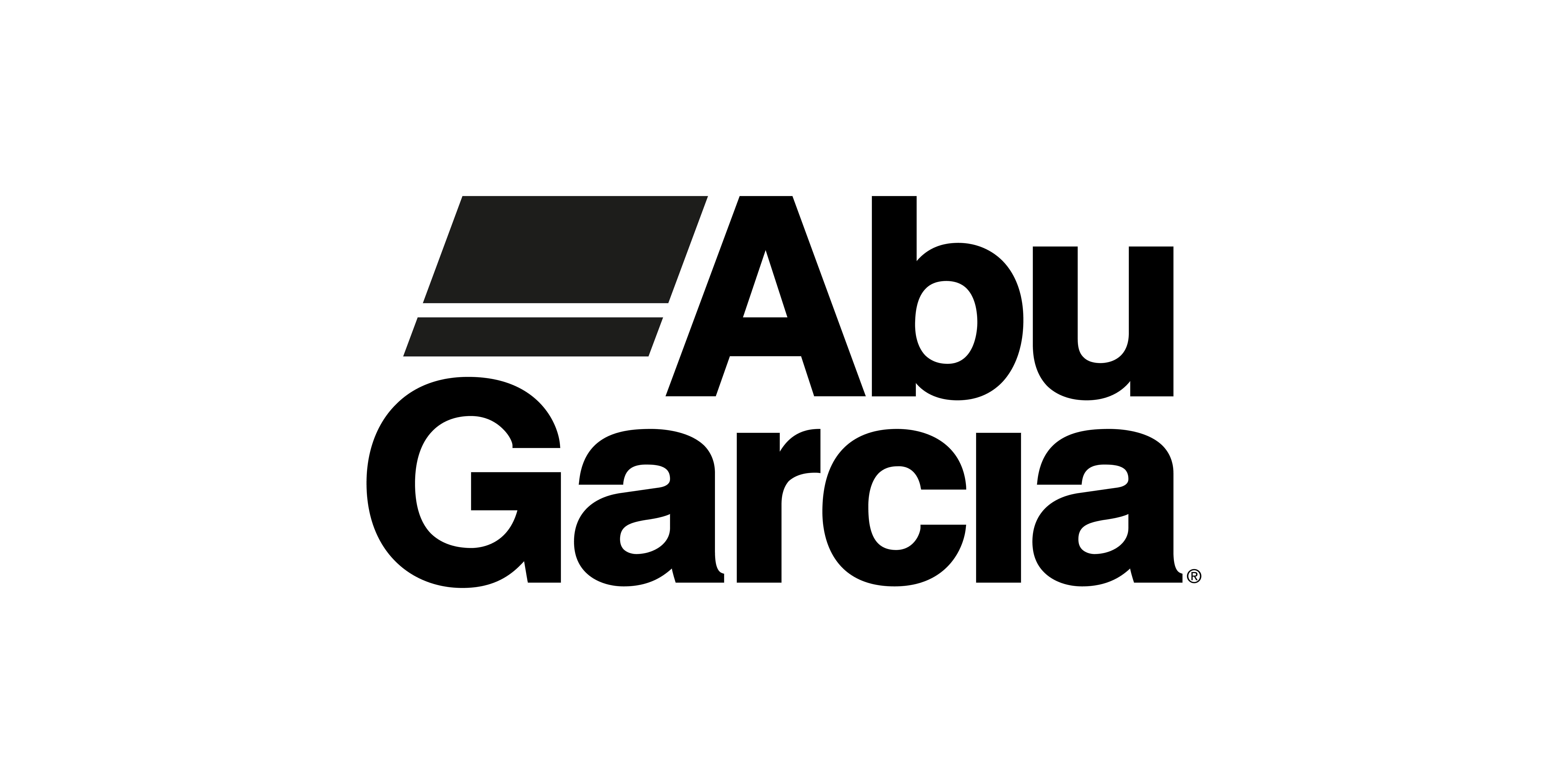Amazon Surinam
Amazon Surinam
Super jungle fishing-
Day 1 arrival in Paramaribo and transfer to Eco Resort Inn hotel.
-
Day 2 half day transfer to Boskamp and houseboats, rest of the day fishing.
-
Day 3, 4, 5 and 6 fish
-
Day 7 depending on the return flight morning fishing and afternoon transfer or morning transfer to airport with stopover at pool/hotel to freshen up and flight home.
-
Day 8 arrival at home
2. The Coppename, Wayanbo and Nickerie rivers by house boat: the main species here is the great lau lau as well as wolffish, electric eel, piranha and peacock bass. This trip takes 10 days and you stay on one or more two- to four-person house boats. There is a 15-foot fishing boat with 15 HP engine and guide per two anglers. And there is a cook to provide all meals.
- Day 1 arrival in Paramaribo and transfer to Eco Resort Inn hotel
- Day 2 half-day transfer to Boskamp and houseboats, rest of the day fishing
- Day 3 to 9 seven full days of fishing
- Day 10 fishing until noon and return to Boskamp. Transfer to Paramaribo to Eco Resort Inn hotel
- Day 11 transfer to airport and afternoon flight home
- Day 12 arrival in Europe or elsewhere
-
Day 1 arrival in Paramaribo and transfer to hotel River Breeze in Nickerie.
-
Day 2 full day transfer to Nickerie and guesthouse at the Wonotobo Falls (Average 10 hours sailing)
-
Day 3, 4, 5, 6, 7 and 8 fish
-
Day 9 transfer to Nickerie / Paramaribo and depending on flight schedule hotel or flight home.
-
Day 10 arrival at home
-
Day 1 arrival in Paramaribo and transfer to the hotel River Breeze in Nickerie
-
Day 2 full day transfer to Nickerie and guesthouse at the Wonotobo Falls.
-
Day 3, 4, 5, 6, 7 and 8 fish
-
Day 9, 10, 11, 12, 13 and 14 fish past the Wonotobo Falls.
-
Day 15 transfer to Nickerie / Paramaribo and depending on flight schedule hotel or flight home.
-
Day 16 arrival at home
Fishing on the Coppename river takes place from a houseboat floating on the river. This pontoon is specially made for this purpose and contains one single to two bunkbeds with mosquito nets. There is also a small kitchen that provides amazingly tasty meals. During your stay on the houseboat there is a cook and a fishing guide included and will make sure that you will not short of anything.
The landbased tours that are realized from the Wonotobo Falls have a comfortable fishing camp at the Wonotobo Falls as a base camp. The fishing camp has a relaxed set up and is equipped with camp beds with mosquito nets. In both stays there is no running water and the bucket is your shower! In other words: it is a real adventure in every way. In the camp there is a generator in the evening which is turned on to generate electricity but since your phone has no reception in the fish camp near the waterfalls and beyond it is only necessary to charge the photo camera.
During your stay all meals, water, coffee and tea are included. The meals consist of pasta, potato, beef, chicken and pork. Breakfast includes bread, eggs and cold cuts. In other words, you won't be short of anything here. If you want to bring beers or soft drinks it is possible to get them in the supermarket on your way from the hotel to Nickerie. These costs are personal and extra.
You will need to bring your own equipment for fishing. For the lau lau and tarpon it concerns very solid catfish rods, popper rods or 30 lbs boat rods. The lau lau can reach 100 kilo here so you need a rod with a serious backbone. The casting weight is from 150 to 250 grams. Think for example of the Hart Wild Pop 3 or Sensicast. In combination with a strong baitrunner reel like the Shimano Baitrunner 12000 with braided line of 50 kilos breaking power. If you get a strike, you have a good chance that the fish will look for the underwater branches and trees. Then a strong main line is very important. At the Wonotobo waterfalls we use an extra 20 to 25 meters of nylon to tackle any abrasions along the rocks.
You fish with a maximum of 2 rods at a time because the current of the river makes it no use to fish with more rods at the same time, the lines will then always end up together. In addition to the targeted fishing for the large species and the very heavy rods, it is wise to take a solid bass rod with a 5000 reel and dyneema of 20 kilos breaking force. And a spinning rod around 30 - 70 grams and a baitcaster for the smaller species. At the pontoon there is an aluminium boat of 15 feet with 15 HP engine available per two anglers. This is used, among other things, to chase large fish and to be able to drill them in a perfect way. The strikes of the big fish as lau lau and tarpon are often during the tidal changes. In the other periods you can take the aluminium boat out on small side branches of the river to look for the other and slightly smaller predators.
The leaders are simple to setup: on the main line you place a zip slider with, depending on the current, 100 to 300 grams of lead. On the main line you mount a bead to protect the knot and then a swivel of at least 100 kilos breaking force. On top of that the kevlar or coated steel leader of 60 to 90 cm and the bait rig to present the baitfish. Also handy is to bring a good bite detector. That will make your life a lot easier. Especially if you want to sleep in between or at night. As bait we use local smaller fish or heads of them. These are all caught and provided locally.
In addition to static fishing for the large species during the current period of the tidal changes, in the quiet period you can go out with the 15 foot aluminium fishing boat with 15 HP engine that is present at each fishing camp. This boat is used in case of a strike of a large fish in order to be able to sail behind it and drill the fish well. But in quiet times they are perfect for fishing for 'smaller' species. Use a medium spinning rod of 40 to 80 grams and different types of lures. Think of poppers, lures, crankbaits, blinkers, shads, jerks and so on. But also a single hook with a float and piece of fish is very effective. Species such as piranha, catfish, peacock, electric eel, red tail etc give this set a serious fight and super sport.
-
The small dry season: mid January till the end of April.
-
The big dry season: mid-August to early December
januari 30 23 6 18 28
februari 30 22 7 13 28
maart 30 23 7 15 28
april 31 23 6 17 28
mei 31 24 6 23 28
juni 32 24 7 24 28
juli 32 24 8 21 28
augustus 32 23 9 15 29
september 31 23 9 9 29
oktober 31 23 9 9 29
november 31 23 8 12 28
december 31 23 6 18 28
-
Coppename from August to March
-
Wonotobo + jungle from June to February
-
2 persons 2195 euro pp
-
3 persons 2095 euro pp
-
4 persons 1945 euro pp
- 2 persons 2695 euro pp
- 3 persons 2555 euro pp
- 4 persons 2395 euro pp
-
2 persons 2725 euro pp
-
3 persons 2555 euro pp
-
4 persons 2455 euro pp
-
4 or more persons 3495 euro pp
